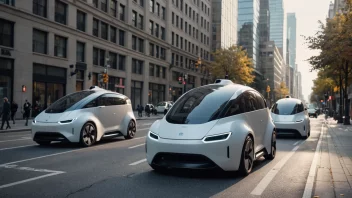Artificial Intelligence (AI) is no longer just a futuristic concept; it’s becoming an integral part of our daily lives, especially in the realm of content creation. As technology continues to evolve, AI tools are reshaping how we approach writing, graphics, and even video production. This article explores the impact of AI on content creation, highlighting its benefits, challenges, and practical applications.
One of the most significant advantages of using AI in content creation is efficiency. AI tools can analyze large volumes of data, allowing creators to generate insights and ideas quickly. For instance, platforms like Grammarly not only check for grammar but also provide style suggestions tailored to different audiences. This can save writers hours of editing time, enabling them to focus on creativity rather than mechanics.
Moreover, AI can assist in generating content ideas. Tools such as BuzzSumo and AnswerThePublic can help identify trending topics and questions that audiences are asking, ensuring that the content is relevant and engaging. This capability allows creators to stay ahead of the curve, addressing what matters to their audience in real-time.
In addition to content generation, AI is transforming how we visualize ideas. Tools like Canva utilize AI to suggest layouts and designs based on user inputs, making graphic design accessible even to those with little experience. This democratization of design helps men interested in creating visually appealing content without needing extensive training.
However, the rise of AI in content creation also raises concerns about originality and authenticity. As AI tools become more prevalent, there's a risk that content may become generic or repetitive. It's crucial for creators to maintain a unique voice and personal touch in their work, even when using AI assistance. Balancing the use of technology with personal creativity is key to producing content that resonates.
Moreover, while AI can enhance productivity, it’s essential to remember that it should complement human creativity, not replace it. For example, using AI to automate mundane tasks, such as keyword research or social media posting, allows creators to dedicate more time to brainstorming and the actual writing process. This synergy can lead to a more fruitful creative endeavor.
In conclusion, the effect of artificial intelligence on content creation is profound and multifaceted. By improving efficiency, generating relevant ideas, and enhancing visuals, AI tools are empowering creators to produce high-quality content more effectively. However, it’s essential to strike a balance between leveraging these tools and preserving the authenticity of the creative process. As we move forward, embracing AI while nurturing our unique voices will be crucial for success in the ever-evolving landscape of content creation.






